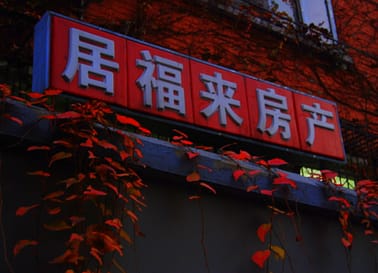Speech contest, the twice-yearly recitation by students in front of their peers, teachers, and a smattering of parents, is almost ready to begin.
The secretaries try to settle down eighty rambunctious students while the contest participants nervously make final preparations in classroom one. In the teachers’ room our manager, “Jean,” hands out a scoring sheet and provides some last minute instructions. After that she moves to the lobby and speaks to the students through a portable PA system. Following a few words in Korean, Jean switches to English and asks the teachers to come out.
We take our seats on a lineup of chairs against the wall, forming an informal judge’s panel. Jean claps twice and the kids mimic her in obedient solidarity. It takes a few minutes for the excited mass of students, glad to have a reprieve from classroom study, to settle down, but all eventually do and the speech contest is ready to begin.
Before it starts, though, Jean addresses a group of about twenty parents at the back of the room. This is fitting, considering that the performance is primarily for them.
English in Korea is two things: a status symbol and a business. In an increasingly globalized world where English is the common tongue, Koreans who can speak the language have a decided competitive advantage over those who can’t. But English is more than just practical here. In a part of the world where ostentatious shows of wealth are commonplace, English has as much brand appeal as Starbucks, BMW or Louis Vuitton. To use it proficiently is to demonstrate that one is refined, cultured, and perhaps most importantly, moneyed.
The result is a multi-billion dollar private education industry in Korea that sells not so much English, but the appearance of learning English. Because they are run like businesses, not schools, these academies are primarily interested in producing profits, not proficient English speakers. The result is a legion of young Koreans who dedicatedly study English but have surprisingly little to show for it.
Academy owners and administrators, while perhaps not actively seeking to discourage learning, effectively do so through their policies, which are catered to keeping the customers—the parents—happy. Giving these customers what they want means assuring them that their children are learning English. This is done by steadily advancing students from one level to the next and progressing through textbooks with strict regularity.
Whether or not a student is ready to be advanced or a new text introduced is of secondary import. It is the parents, most of whom don’t speak English, who decide what is appropriate. While practices such as leaving a struggling student at his current level until he’s ready to level up or teaching a book to promote deep understanding make sense from an educational standpoint, they make for a poor business model. Parents who don’t see their child rapidly rising through the ranks of English mastery could very well become unsatisfied customers who take their business to one of many competitors.
In this environment, only the brightest students have a chance to become decent English speakers. Most struggle mightily to get their heads around a language that is so different from their own. Teachers, by and large, do their best, and some indeed work wonders. Still, all are handcuffed by administration-generated syllabuses that favor completion over retention.
And at this school, even when a student fails abjectly, teachers are not allowed to give accordingly low marks on the once-a-semester progress reports. Any instructor who assigns a grade lower than a “C” will be asked by Jean to change it. Should we fail to, she or one of the Korean teachers would most likely alter it anyway, or else sugarcoat it during the parent-teacher phone calls that accompany the reports.
The Korean educators aren’t to blame because they, too, are held back by policy. They also shouldn’t be blamed for their poor English, as they are themselves products of the education system that promotes it. Acknowledging this, however, doesn’t change the fact that their English shortcomings are reinforced in each generation of students that they teach.
In addition to being a status symbol and a business, then, English teaching in Korea can well be described as a game, one that foreigners will continue to play as long as considerable compensation packages (a standard year contract includes 13 months’ salary, accommodation, health care, and airfare) are offered. Despite Koreans’ claims that they can educate themselves in English, until their overall skill level vastly improves, foreigners are needed to lend legitimacy to academies.
As the faces of the franchise we are put on display for the parents during this orchestration called speech contest, an event that sees Koreans, foreigners, and English intersect in a vague, fabricated idea of a forever happy sunshine joy life. But make no mistake about it: never, ever, not even for a moment, is any of this about learning English.
The topic of this semester’s speech contest is “My Family”.
First up to present is Billy from class A4. Similar to many 12 year old Korean boys he has black hair, a bowl cut, glasses, and a kimchi stain down the front of his shirt. His poster board is adorned with photos of him and his family on vacation. The ‘i’ in ‘Family’ has been awkwardly added in after the fact over the top of the ‘m’ and the ‘l’. After a nervous look around he begins.
“My family. My family is me, brother, mother, father, sister. Father job microprocessor and is kind. Mother…mother…
Jean tries to get some encouragement from the crowd.
“Crap…come on…crap for Billy!” she says, cajoling the audience into weak applause.
“Mother…mother cook home. Sister pretty. My study math go USA. Thank you my speech.”
“OK good job Billy,” says Jean. “Next student is Harry.”
Like his classmates, Harry also too sports a look common among his age group: gray hairs.
While learning English may not be real in Korea, the pressure to learn it is. Koreans believe education is the cornerstone of success, resulting in fierce competition in both public schools and private institutions like this one.
And English is only one aspect of their academic dedication. Most students attend at least one or two additional academies to perfect skills such as math, science and Korean. In an atmosphere where not being the best is often regarded as failure, it’s easy to see why students gray at the age of twelve and indeed, why South Korea has one of the highest suicide rates in the world.
Harry clears his throat, works out a facial tic, and begins his speech.
“My family is me, father and mother. Father has Samsung job. He is smart. Mother is clean the house. She is kind. My is student. I like chicken. Thank you for listen my speech.”
Assured from past experience that this is one of the better speeches I will hear all afternoon, I score it 9 out of 10.
With time to kill I grade a few journals, which are the students’ weekly writing assignments. Excerpts from this batch include:
Jenny, Class B4
“My Weekend”
This weekend I made an omelet and ate my family.
Daisy, Class C6
“Test”
In my weekend I creamed for an exam. I know creaming is not the best way to prepare for an exam.
Jessica, Class D2
“My Hero”
My hero is Oprah Winfrey because she overcame being ugly negro.
Stan, Class C6
“Math”
I like math because I use math to find the rectum.
“Very good,” says Jean. “Thank you. Next student Sally.”
As I pick up a new stack of diaries my co-worker Seth grabs my arm.
“Dude.”
“What?”
“Dude…look.”
He points to Sally. I see nothing out of the ordinary. Straight black hair. Glasses. Pink outfit…and there it is. In silver lettering on Sally’s shirt are the words, “I Fuck on the First Date.”
The teachers look at each other. It is a silent meeting to decide whether to do something or not. Nobody makes a move.
I measure the parents’ reactions. There is no hint of recognition that the 11-year-old girl at the front of the room is endorsing promiscuity. None of the students or Korean teachers appear to notice, either. Jean doesn’t have a clue. She pats the girl on the shoulder and tells her to begin. Sally delivers her monologue and at the end everybody craps and the next speaker is brought on.
It is a speech contest day miracle. Sally’s pretty pink shirt is an indictment of the entire English language business in Korea. Wearing those six embossed words, she lays bare the entire sham.






